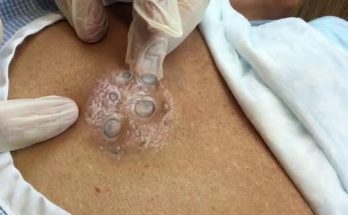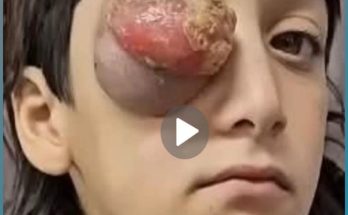Scroll Down to watch..👇👇

Is chest acne related to steroids?
Certain medications, including corticosteroids, can increase the risk of developing acne on the body, including chest acne. Corticosteroids, which are different from the steroid compound that athletes sometimes abuse, are a medication that reduces inflammation to decrease tissue damage. Corticosteroids can be taken orally or administered locally in the form of eye drops or creams. Often, when taken orally, corticosteroids can increase the risk of developing acne breakouts. If you are experiencing acne breakouts while taking corticosteroids, it is essential to consult with your healthcare provider before changing how you take the medication. It may be possible to receive a lower dose of the medication or switch to a localized method of administration to reduce the risk of acne breakouts.
Why is my chest acne itchy?
There are several reasons why chest acne may be itchy, but the most common reason is dry, irritated skin around the breakout site. Dehydration can contribute to dry, cracked, and flaky skin, which leads to an increase in sebum production to compensate, resulting in pores clogged with excess oil and dead skin cells. Suppose you are experiencing itchy skin at the treatment site. In that case, it is essential to avoid itching to reduce the likelihood of popping the pimples there, which can cause permanent scarring or worsen the existing breakout.
What to do for chest acne at home: from essential oils to the right laundry detergent
There are a few different natural oils and skincare products that can be useful in treating chest acne breakouts. For example, tea tree oil and other essential oils can be useful in combating acne breakouts in varying areas of the body due to their antibacterial properties. Additionally, apple cider vinegar, oral zinc supplements, green tea, and clay masks are commonly used as homeopathic remedies for chest acne, body acne, and acne scars. However, it’s best to test any of these products on a patch of skin first to make sure that your skin does not have an adverse reaction that could further irritate any active acne lesions.
The appearance of acne can be minimized by always remembering to wash your face and body after exercising or sweating. A daily skincare regimen combined with a strict hygiene routine can do wonders in reducing the appearance of acne. Also, it’s crucial not to squeeze or pick at any acne, as this can worsen inflammation and cause scars. Stress reduction, good nutrition, and adequate amounts of sleep can help your body best regulate hormones that can affect the development of acne. While mild cases of acne may respond well to home remedies, moderate to severe acne breakouts typically require a customized acne treatment plan to resolve effectively. It is important to consult with a board-certified dermatologist, such as Dr. Michele Green in NYC, as soon as breakouts appear to prevent the development of acne scars. Acne scars are often more challenging to treat than the acne breakouts themselves.
The materials that come into contact with our skin can have a huge impact on skin health. Irritants like fragrances and dyes can cause inflammation and acne when they’re in products we use, like moisturizers or laundry detergents. Some patients, even those suffering from severe cases of cystic acne, have found relief by switching their laundry detergent to one that’s gentle and fragrance-free.
Happy to Watch Full video here..👇👇



